“Donald J. Trump is calling for a total and complete shutdown of Muslims entering the United States until our country’s representatives can figure out what the hell is going on,” reads Donald Trump, the 2016 Republican nominee for president at a rally in December 2015, following the San Bernardino shooting in the United States.
You can imagine our intrigue when we learned that there is a growing movement among Americans of Middle Eastern descent, Muslims and non-Muslims alike, who are supporting Trump.
We spoke with Hossein Khorram, an Iranian Muslim American living in Seattle, who is a fundraiser for Trump Victory Inc. So far, he has raised $140,000 for the Trump campaign.
Iranian Revolution of 1979
Hossein was born in northern Tehran, went to public schools and, in the 1970s, he remembers “when everything went south.”
“I clearly recall the inception of the revolution in Iran,” remembers Hossein. “They were a small group of people, not popular. In my high school maybe 5% were the Islamists. [And] 95% were people like me who respect the religion and God, and Prophet Muhammad, but felt that was not a license to override other people with.”
As the Islamic Revolution picked up momentum in Iran, Hossein’s parents encouraged their two sons to go abroad for their schooling. So Hossein got a visa and went to the US. His family followed him a few months later, but his father, Farhad Khorram, continued going back and forth to check on the family business. Farhad and his brother owned a large manufacturing company with a couple hundred employees selling fireproof safes and metal cabinetry in Tehran.
On one trip back to Tehran, Farhad was planning a hunting trip with his brother and four friends, about 3,400 miles away from the capital. As he spoke freely about the trip in his office, one man from the Foundation of the Weak, Bonyad Mostazafan, was stationed at the office as a guard and overheard his plans. These foundations were notorious during the time of the revolution for doing political work under the guise of charitable organizations, including seizing private assets.
“And when [my father] went hunting, the revolutionary guards were waiting for them.” The guards claimed his father and friends were plotting a coup against the regime as enemies of God, and they pointed to the weapons Farhad and friends were carrying as proof of their ill intent. The guards blindfolded Farhad and party, put them in a mini bus and drove them to the Evin Prison, which is notorious for its executions and political prisoners.
At the prison, the guards brought pieces of paper, handed them to Farhad and the others, and instructed the group to write their wills because they were going to be executed.
The guards blindfolded them and lined them up, but instead of shooting at them, they shot into the air. “It took them a few minutes to kind of touch and figure out which world they were in—is it this world or the next? And after a minute or so, no they’re not dead yet, they’re still here.” The guards said they changed their minds and would execute the group in the morning.
The following morning, the guards lined the group up and shot in the air. This went on for four or five days. Each day, Hossein’s father was told that he would be executed, and by the next morning the guards changed their minds. Eventually, his father was transferred to a different prison where he was held for another eight months. Then, one day, the clergy walked up to Farhad and offered him a deal: Pay $80,000 as compensation for their hospitality, and they would let him out for a vacation for one day.
“My aunt came up with the money, and they had him leave for one day, but the understanding was he would never come back.”
By this time, the regime had seized all the Khorram family’s assets, and Hossein’s father had nothing—they lost possession of their houses, bank accounts, everything. The family borrowed money from friends, and Farhad was driven to the border and escaped into Pakistan. At the kindness of strangers, he found his way to the US to reunite with his family, and they began rebuilding their lives.
Middle Eastern Supporters of Donald Trump
Today, Hossein lives in Seattle in the United States and is a real estate developer. We met him in one of his buildings, an apartment complex that has Trump/Pence signs hanging off the balconies. Most of the tenants are Iranians—older men and women who sit in the common room and play board games, talking in Farsi. And most are voting for Trump for the same reasons as Hossein.
“Politics tore our life apart,” says Hossein. “Before this revolution, we were just ordinary people who didn’t really care for politics, but we paid a very dear price. Our life became political. I became active in the Iranian resistance to the regime. And one thing that compels me to the Trump campaign is the way appeasement policies have not paid off. Since President [Barack] Obama signed the nuclear agreement with Iran … we have to let go of appeasement, and the time is now.”
Among Christian Arabs or ethno-minorities such as Yazidis, Assyrians and Chaldeans, supporters of Trump feel that the US has not been tough enough on rising Islamist extremism that threatens their home country communities. “We don’t think that a third Obama term is going to be good for the Middle East,” says David William Lazar, a member of the American Mid East Coalition for Trump. “And by third Obama term I mean Hillary Clinton. So we looked at what Mr. Trump was saying about his Middle East policies, and that’s why we’re working to get him elected.”
The American Mid East Coalition for Trump comprises Lebanese, Iraqis, Assyrians, Turks and Iranians, who outline seven of Trump’s Middle East policies they support:
“(1) His opposition to the destructive Iran Deal signed by the Obama administration with the Ayatollah regime in Tehran; (2) His firm opposition to the Muslim Brotherhood and other Islamist influence in the United States; (3) His determination to destroy ISIS [Islamic State] and push back against all terror groups such as Hamas, Hezbollah and all other Jihadi terror groups; (4) His willingness to take action in defense of the persecuted Christians and Yazidis in the Middle East; (5) His determination to help in the creation of free zones inside Syria and Iraq to resettle the refugees; (6) His support for the formation of an Arab coalition against terrorists; (7) His vision to help the Middle East become stable and prosper.”
One rising sentiment seems to be that while Hillary Clinton is politically correct, her policies voting twice for the PATRIOT Act and for the Iraq War have adversely impacted the Middle East as a region and its diaspora population in the US. We heard a lot of: “I’d rather have someone slap me in the face than stab me in the back. At least I know what I’m dealing with.”
Or, we heard that Trump’s volatility and unfamiliarity with politics are perceived as his strengths: “I’m going to vote for Trump,” says Ray Hanania, a Palestinian American journalist living in Chicago. “Even though it’s a 50/50 risk he may be just as bad as Hillary … or! Maybe, there’s a chance, because he’s so uncontrollable, that he could turn out to be the catalyst that changes the dynamics of how this country deals with the Middle East. Now, people say, oh that’s a big if! But I say, OK, it’s a chance. But you know, when you gamble, you’re taking a chance, and I’m willing to risk it with him rather than risk with somebody I know is going to take me down a road I don’t want to go down.”
While statistics are difficult to gather with any certainty on the Middle Eastern American population in the US, one survey by the Council on American-Islamic Relations in March 2016 found that 11% of their surveyed 1,850 registered Muslim voters across six states support Donald Trump.
From our on-the-ground conversations with Middle Eastern Americans in Maryland, Washington, DC, Chicago, Los Angeles and Seattle, we found quite a few who plan to vote for Trump—some are silent in their support, some are vocal.
*[Author’s note: The views expressed herein do not reflect the views of Kerning Cultures and company. This feature was originally published on Kerning Cultures, a partner institution of Fair Observer.]
The views expressed in this article are the author’s own and do not necessarily reflect Fair Observer’s editorial policy.




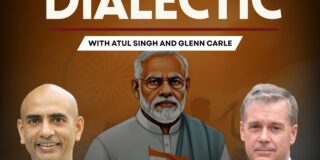
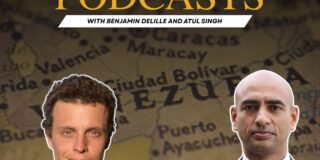


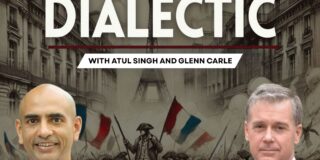

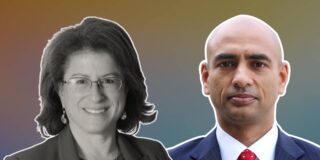
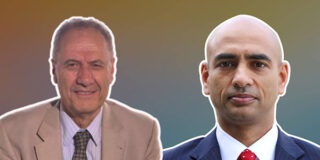



Commenting Guidelines
Please read our commenting guidelines before commenting.
1. Be Respectful: Please be polite to the author. Avoid hostility. The whole point of Fair Observer is openness to different perspectives from perspectives from around the world.
2. Comment Thoughtfully: Please be relevant and constructive. We do not allow personal attacks, disinformation or trolling. We will remove hate speech or incitement.
3. Contribute Usefully: Add something of value — a point of view, an argument, a personal experience or a relevant link if you are citing statistics and key facts.
Please agree to the guidelines before proceeding.